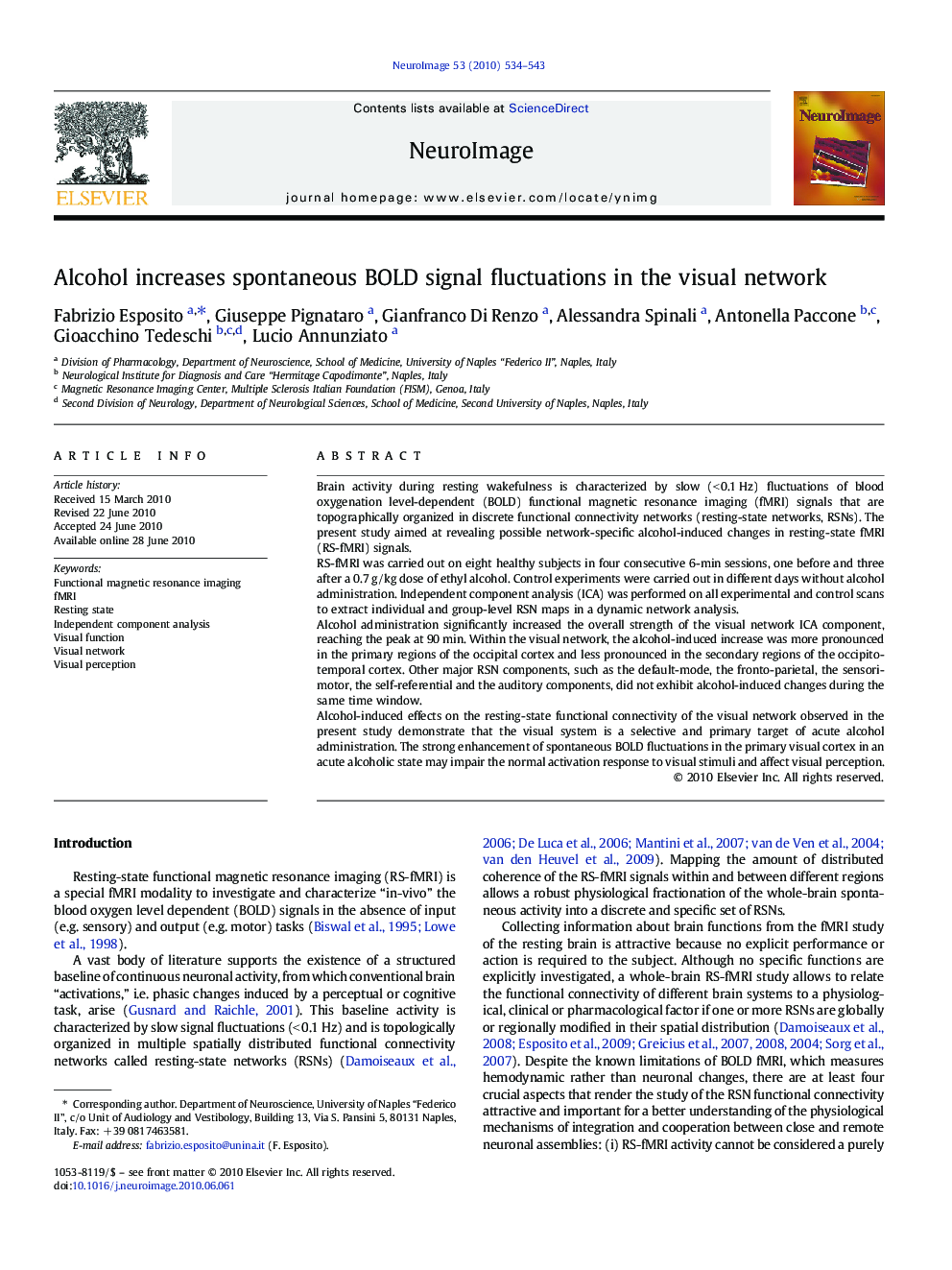| کد مقاله | کد نشریه | سال انتشار | مقاله انگلیسی | نسخه تمام متن |
|---|---|---|---|---|
| 3072269 | 1188769 | 2010 | 10 صفحه PDF | دانلود رایگان |

Brain activity during resting wakefulness is characterized by slow (< 0.1 Hz) fluctuations of blood oxygenation level-dependent (BOLD) functional magnetic resonance imaging (fMRI) signals that are topographically organized in discrete functional connectivity networks (resting-state networks, RSNs). The present study aimed at revealing possible network-specific alcohol-induced changes in resting-state fMRI (RS-fMRI) signals.RS-fMRI was carried out on eight healthy subjects in four consecutive 6-min sessions, one before and three after a 0.7 g/kg dose of ethyl alcohol. Control experiments were carried out in different days without alcohol administration. Independent component analysis (ICA) was performed on all experimental and control scans to extract individual and group-level RSN maps in a dynamic network analysis.Alcohol administration significantly increased the overall strength of the visual network ICA component, reaching the peak at 90 min. Within the visual network, the alcohol-induced increase was more pronounced in the primary regions of the occipital cortex and less pronounced in the secondary regions of the occipito-temporal cortex. Other major RSN components, such as the default-mode, the fronto-parietal, the sensori-motor, the self-referential and the auditory components, did not exhibit alcohol-induced changes during the same time window.Alcohol-induced effects on the resting-state functional connectivity of the visual network observed in the present study demonstrate that the visual system is a selective and primary target of acute alcohol administration. The strong enhancement of spontaneous BOLD fluctuations in the primary visual cortex in an acute alcoholic state may impair the normal activation response to visual stimuli and affect visual perception.
Research highlights
► Combining resting-state and pharmacological fMRI experimental designs is possible.
► Alcohol increases resting-state fMRI fluctuations selectively in the visual network.
► Spontaneous BOLD visual activity correlate with blood alcohol concentration.
► Alcohol affects the visual system even if the subject is resting with eye closed.
► Resting-state fMRI allows tracking acute drug-induced alterations in brain networks.
Journal: NeuroImage - Volume 53, Issue 2, 1 November 2010, Pages 534–543